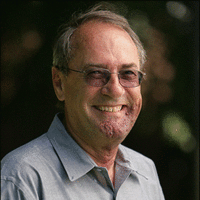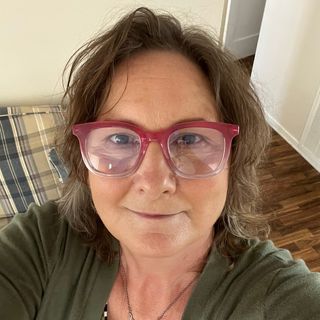Hardware architecture and a software framework, where the combination allows software to run.
Event
ABMUS 2016
The 1st Workshop on Agent Based Modelling of Urban Systems (ABMUS 2016)
in conjunction with the AAMAS2016
Singapore on the 9th or 10th May 2016 | http://www.modelling-urban-systems.com/
Submitted by Anonymous on December 4th, 2015
The Cyber-Physical Systems Virtual Organization (CPS-VO) was founded by NSF in 2010 to: (i) facilitate and foster interaction and exchanges among CPS PIs and their teams; (ii) enable sharing of artifacts and knowledge generated by the projects with the broader engineering and scientific communities; and (iii) facilitate and foster collaboration and information exchange between CPS researchers and industry. During the last five years, the CPS-VO has become the focal point of the CPS community in the US and it has played a significant role in catalyzing CPS research world-wide. The CPS-VO Portal serves as a central information repository and as a collaboration platform for the rapidly growing research community. It is the home to ~200 special interest groups, reaches ~10,000 members, and includes ~20,000 webpages and ~24,000 files capturing the first 8 years of CPS history (as of 1-Oct-2015). This proposal looks to envision how the CPS-VO will be transformed over the next few years into a resource which becomes a "destination for doing" rather than a repository and collaboration capability.
In this proposal we address the next phase of development of the CPS-VO: (1) changing the Portal from being a passive information repository and collaboration platform to becoming an active resource as research tool for CPS, (2) serving as an integration platform for open source CPS tools and models emerging from the research community and (3) making the Portal an active resource for CPS education. Active Resources encapsulate the new capabilities of the CPS-VO. Research teams may contribute to Active Resources on three different levels: (a) end-to-end design and simulation tool chains and test beds including model repositories, tools and web-based user interfaces to access resources, (b) individual tools that can be integrated into design flows, and (c) models and code integrated into open repositories. The proposal will spur CPS community growth through conducting series of student competitions to be held in the first two years building on the unmanned air vehicle design studio from UPenn that will allow students and researchers to study the physical design, dynamics and control of quad rotors, a multi-model simulation system from Vanderbilt facilitating the virtual integration of embedded software for control, estimation, planning, and coordinated, dynamic flight of multiple micro air vehicles. In addition, the CPS VO will extend outreach to the community to identify new and emerging VO needs and provide enhanced user experience through redesign of the user facing portal and integration of new information management technologies.
Off
Vijay Kumar
Paulo Tabuada
Jonathan Sprinkle
Vanderbilt University
University of Arizona
University of California, Los Angeles
University of Pennsylvania
Janos Sztipanovits
-
National Science Foundation
 Submitted by Janos Sztipanovits on October 21st, 2015
Submitted by Janos Sztipanovits on October 21st, 2015
Event
INTRICATE-SEC 2016
4th International Workshop on Security Intricacies in Cyber-Physical Systems and Services (INTRICATE-SEC 2016)
held in conjunction with the 30th International Conference on Advanced Information Networking and Applications (AINA-2016)
Topics of Interest
Submitted by Anonymous on October 2nd, 2015
File
CFP_WFCS2016.pdf
 Submitted by Amy Karns on September 18th, 2015
Submitted by Amy Karns on September 18th, 2015
Event
ICCPS 2016
7th ACM/IEEE International Conference on Cyber-Physical Systems (ICCPS 2016)
held as part of CPS Week 2016 to be held in Vienna, Austria, from 11 to 14 April 2016.
Submitted by Anonymous on September 18th, 2015
This project focuses on the formal design of semi-autonomous automotive Cyber Physical Systems (CPS). Rather than disconnecting the driver from the vehicle, the goal is to obtain a vehicle where the degree of autonomy is continuously changed in real-time as a function of certified uncertainty ranges for driver behavior and environment reconstruction. The highly integrated research plan will advance the science and engineering for CPS by developing methods for (1) reconstructing 3D scenes which incorporate high-level topological and low-level metric information, (2) extracting driver behavioral models from large datasets using geometry, reasoning and inferences, (3) designing provably-safe control schemes which trade-off real-time feasibility and conservatism by using the evidence collected during actual driving.
Assisting humans in controlling complex and safety-critical systems is a global challenge. In order to improve the safety of human-operated CPS we need to provide guarantees in the reconstruction of the environment where the humans and the CPS operate, and to develop control systems that use predictive cognitive models of the human when interacting with the CPS. A successful and integrated research in both areas will impact not only the automotive sector but many other human-operated systems. These include telesurgery, homeland security, assisted rehabilitation, power networks, environmental monitoring, and all transportation CPS. Graduate, undergraduate and underrepresented engineering students will benefit through classroom instruction, involvement in the research and a continuous interaction with industrial partners who are leaders in the field of assisted driving.
Off
Ed Vul
J. Karl Hedrick
Ruzena Bajcsy
Edgar Lobaton
University of California at Berkeley
Francesco Borrelli
-
National Science Foundation
Francesco Borrelli
 Submitted by Francesco Borrelli on August 27th, 2015
Submitted by Francesco Borrelli on August 27th, 2015
This project develops a theoretical framework as well as software tools to support testing and verification of a Cyber-Physical System (CPS) within a Model-Based Design (MBD) process. The theoretical bases of the framework are stochastic optimization methods, and robustness notions of formal specification languages. The project's research comprises three components: development of conditions on the algorithms and on the structure of the CPS for inferring finite-time guarantees on the randomized testing process; the study of testing methods that can support modular and compositional system design; and investigation of appropriate notions of conformance between two system models and between a model and its implementation on a computational platform. All of these components are needed to support testing and verification in all the stages of an MBD process as well as to support component reuse, incremental system improvements and modular design. The evaluation of the framework is driven by the problems of verifying automotive control systems and medical devices.
As safety-critical CPS become ubiquitous, the need for design methods that guarantee correct system functionality and performance becomes more urgent. Certification and government agencies need dependable testing and verification tools to incorporate in certification standards and procedures. The concrete benefits to the society are both in terms of reduced catastrophic design errors in new products and in terms of reduced economic costs for new product development. The former increases the confidence in new technologies while the latter improves the competitiveness of the companies that utilize such technologies. The theoretical results of this project are being incorporated into software tools for testing, verification and validation of complex CPS. The evaluation focus of the project on verifying infusion pumps and automotive control software ultimately helps in avoiding harmful losses due to errors in these safety-critical systems. The use of any software tool that is based on formal or semi-formal methods requires engineers with solid training on these technologies. This proposal puts forward an education curriculum for developing new courses that introduce formal and semi-formal methods for CPS at all levels of higher education, i.e., undergraduate, graduate and continuing education. Particular attention is devoted into on-line continuing education of practicing engineers who must acquire new MBD skills.
Off
Georgios Fainekos
-
National Science Foundation
Georgios Fainekos
 Submitted by Georgios Fainekos on August 27th, 2015
Submitted by Georgios Fainekos on August 27th, 2015
This project aims to achieve key technology, infrastructure, and regulatory science advances for next generation medical systems based on the concept of medical application platforms (MAPs). A MAP is a safety/security-critical real-time computing platform for: (a) integrating heterogeneous devices and medical IT systems, (b) hosting application programs ("apps") that provide medical utility through the ability to both acquire information and update/control integrated devices, IT systems, and displays. The project will develop formal architectural and behavioral specification languages for defining MAPs, with a focus on techniques that enable compositional reasoning about MAP component interoperability and safety. These formal languages will include an extensible property language to enable the specification of real-time, quality-of-service, and attributes specific to medical contexts that can be leveraged by code generation, testing, and verification tools.
The project will work closely with a synergistic team of clinicians, device industry partners, regulators, and medical device interoperability and safety standard organizations to develop an open source MAP innovation platform to enable key stakeholders within the nation's health care ecosphere to identify, prototype, and evaluate solutions to key technology and regulatory challenges that must be overcome to develop a commodity market of regulated MAP components. Because MAPs provide pre-built certified infrastructure and building blocks for rapidly developing multi-device medical applications, this research has the potential to usher in a new paradigm of medical system that significantly increases the pace of innovation, lowers development costs, enables new functionality by aggregating multiple devices into a system of systems, and achieves greater system safety.
Off
Steve Warren
Eugene Vasserman
Robby .
Patrice Chalin
Kansas State University
John Hatcliff
-
National Science Foundation
Venkatesh Ranganath
John Hatcliff
 Submitted by John Hatcliff on August 27th, 2015
Submitted by John Hatcliff on August 27th, 2015
Event
ETAPS 2016
ETAPS is a confederation of several conferences, each with its own Programme Committee and Steering Committee. ETAPS is the most important and visible annual European event related to software sciences. Altogether, more than 500 researchers participate in this event every year.
Submitted by Anonymous on August 25th, 2015
Event
ARCS 2016
29th GI/ITG International Conference on *Architecture of Computing Systems* (ARCS 2016)
The ARCS series of conferences has a long tradition reporting high quality results in computer architecture and operating systems research. The focus of the 2016 conference will be on *Heterogeneity in Architectures and Systems - From Embedded to HPC*.
In 2016, ARCS will be organized by the Department of Computer Science at the Friedrich-Alexander University Erlangen-Nürnberg (FAU).
Submitted by Anonymous on August 25th, 2015
Feedback
Feedback
If you experience a bug or would like to see an addition or change on the current page, feel free to leave us a message.